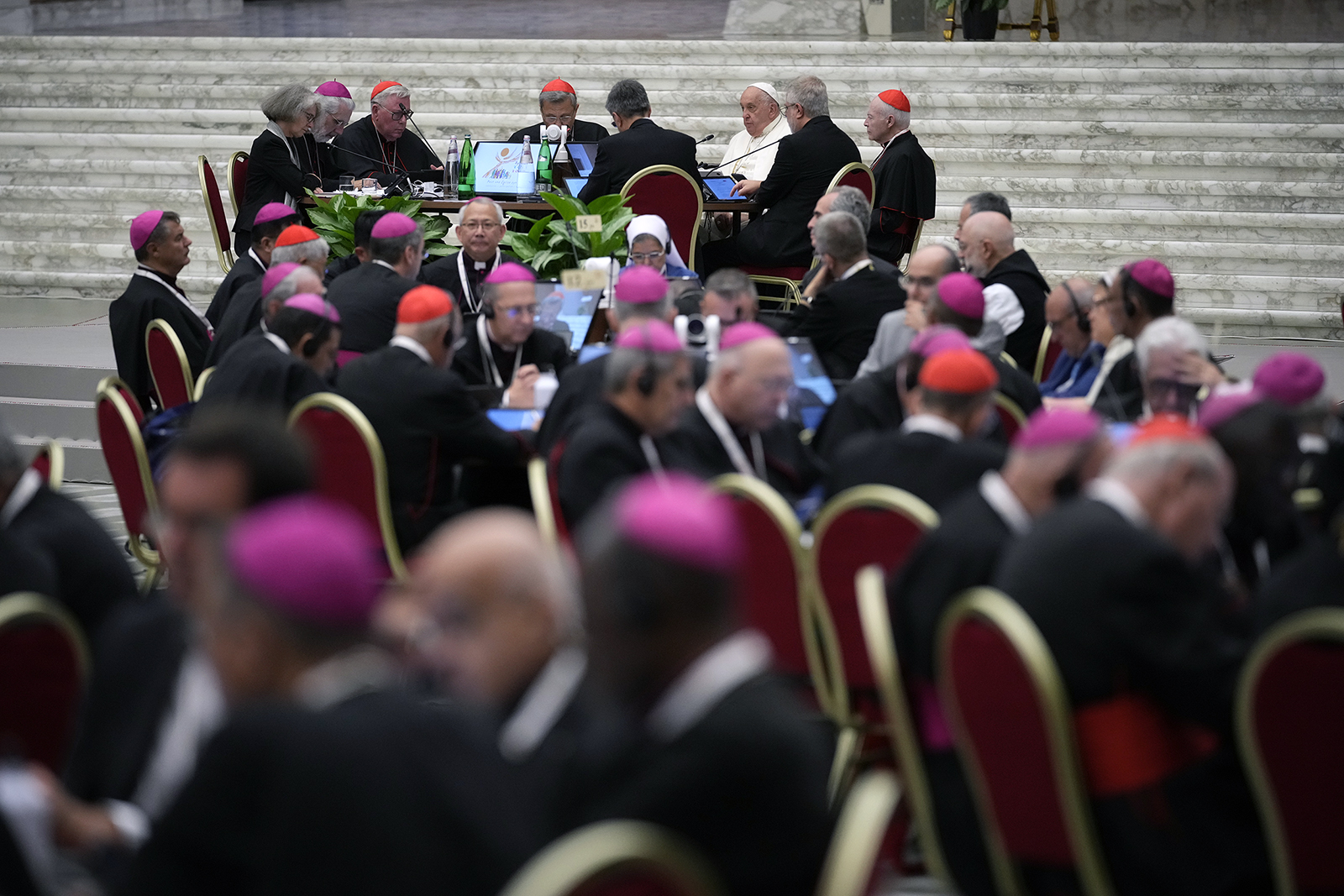
VATICAN CITY (RNS) — From the beginning of his papacy, Pope Francis has waged war against clericalism and called on the clergy to be servants of the people of God. This struggle has continued in the Synod on Synodality, which is taking place in Rome this month.
Synods in the past only involved bishops, but at this synod lay men and women make up about a quarter of the delegates. In addition, the synod began in 2021 with a worldwide consultation process that took stock of the ideas and hopes of ordinary Catholics.
If synodality means that bishops are no longer to be treated like princes whose views are to be followed without question, how does the church change to have more transparency and accountability from bishops? This is a major question being asked in the synod hall.
The church already has some consultative structures that could be adapted for use in dioceses for greater transparency and accountability.
On the clerical side, there are the diocesan consultors, a group of priests who advise bishops who head dioceses, as well as a separate priests’ council. On a few issues, such as the closing of a parish, the bishop is required to consult with the priests’ council and diocesan consultors.
Bishops are also required to have a finance council, which can include lay people, whom he must consult on the disposal of church property and other major financial issues.
Other bodies not mandated by canon law but available to bishops are diocesan pastoral councils and synods, which can be consulted on a wide range of issues. Most U.S. dioceses have pastoral councils, but synods are rare.
One question before the synod, therefore, is how to make these consultative bodies more effective.
Most agree that the latter bodies should no longer be optional, but there is more to be done than making them mandatory. These bodies would be ineffective if they meet only rarely or are treated as passive, rather than active, participants in the life of the diocese.
These bodies could be very effective if they followed the methodology of the Synod on Synodality. This would require listening sessions in which their members would hear from parishioners before the consultative councils meet with the bishop.
When they do meet with the bishop, there should be an atmosphere of prayer, with conversations in the Spirit in small groups as occurred at the synod. After the small groups present their findings to the larger body, that larger group would then work toward consensus on the direction the diocese should take.
Topics that come up might include diocesan finances, parish life, formation of priests and lay ministers, Christian formation of laity, the care for the poor and the promotion of justice. Bishops should also present to their councils the diocesan budget and audit.
The councils should be able to question the bishop and chancery officials on these topics and give advice. In future meetings, the bishop and chancery officials should report back on what they did with the recommendations of the council.
The councils would undoubtedly find some topics need further study, which would require committees to work on these issues between sessions with members of the chancery — a diocese’s administrators and legal minds. Assemblies without committees rarely get anything done.
Simply gathering people together in councils does not automatically guarantee synodality. Bishops must risk transparency, allowing the laity to speak freely, even if it means hearing criticism of their decisions. He also has to make sure that his chancery staff is open to the process.
This is a new way of proceeding in the church, and professional facilitators will be needed to help create and sustain the process. At the synod in Rome, a facilitator at each table has guided the process, while not determining outcomes.
Another system of accountability for bishops is the “ad limina Apostolorum” visits — “to the threshold of the Apostles” — that bishops make to Rome every five years. Prior to the visit, the bishop and his staff draw up a quinquennial report on various aspects of diocesan life.
These reports should be done in a synodal fashion, with input from the priests’ council and diocesan pastoral council. Part of the report should reflect the views of the councils and not just the bishop’s. In fact, the two councils should write up an evaluation of the bishop’s job performance to be sent separately to Rome. In extraordinary circumstances, they might even recommend his retirement or replacement.
Synodality, done right, will require a lot of time for the bishop, chancery officials and council members. Oscar Wilde famously said that the problem with socialism is that it would take up too many evenings. The same is true of synodality in the church — it takes commitment and time. But if the goal of synodality is to get the entire church involved in furthering the mission of Jesus, what better way to spend your time?
The alternative is the continuation of clericalism and paternalism in the church.
